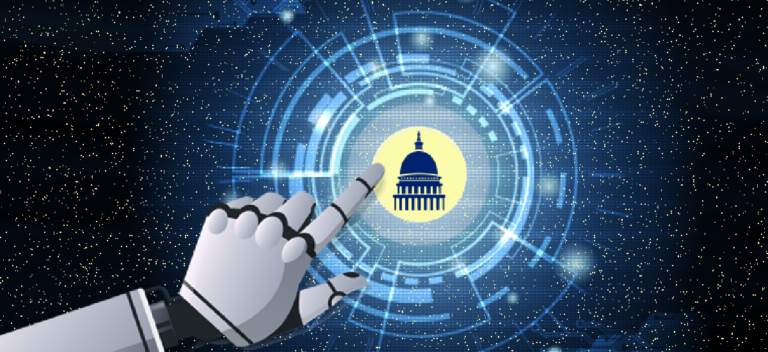
AI in the 2024 Election: A New Era of Political Influence
As the world hurtles into an era dominated by technological advancements, it’s no surprise that artificial intelligence (AI) is poised to play a significant role in shaping the landscape of politics and elections. The 2024 US presidential election stands as a pivotal moment where AI’s influence is set to be more pronounced than ever before. From campaign strategies to voter engagement and beyond, AI is revolutionizing the way political processes unfold.
-
Data-Driven Campaigning: AI’s ability to analyze vast amounts of data is transforming the way political campaigns are run. In the 2024 election, candidates are leveraging AI-powered tools to gain deep insights into voter preferences, behavior patterns, and sentiment analysis. This data-driven approach allows campaigns to tailor their messages more effectively, target specific demographics, and optimize resource allocation for maximum impact.
-
Personalized Communication: Gone are the days of generic campaign messages broadcasted to the masses. AI enables hyper-personalized communication strategies, where each voter receives tailored messages based on their individual interests, concerns, and political leanings. Whether through social media ads, email campaigns, or targeted messaging apps, AI algorithms ensure that voters feel a direct connection to the candidate’s platform, thereby increasing engagement and support.
-
Combatting Disinformation: The proliferation of fake news and disinformation poses a significant challenge to the integrity of democratic elections. AI-powered tools are being deployed to identify and counteract false narratives spread through social media and other online channels. Natural language processing algorithms can detect suspicious patterns, analyze the credibility of sources, and flag potentially misleading content in real-time, helping to safeguard the electoral process against manipulation.
-
Predictive Analytics: AI’s predictive capabilities are invaluable for forecasting electoral outcomes and identifying key battlegrounds. By analyzing historical data, demographic trends, and voter behavior, AI models can generate probabilistic forecasts, guiding campaigns to allocate resources strategically and prioritize efforts where they are most likely to yield favorable results. Furthermore, predictive analytics empower candidates to anticipate emerging issues, adapt their messaging, and stay ahead of the curve in a fast-paced political landscape.
-
Enhanced Voter Engagement: In an era of information overload, capturing and retaining voter attention is a formidable task. AI-driven chatbots, virtual assistants, and interactive platforms are revolutionizing voter engagement by providing personalized experiences and instant access to information. Whether it’s answering questions about policy positions, facilitating voter registration, or offering polling reminders, AI technologies are breaking down barriers and fostering greater civic participation among diverse demographics.
The 2024 election represents a watershed moment where AI’s influence on politics is undeniable. From data-driven campaigning and personalized communication to combating disinformation, predictive analytics, and enhanced voter engagement, AI is reshaping every facet of the electoral process. While the full extent of its impact remains to be seen, one thing is clear: in the age of AI, the rules of political engagement are being rewritten, ushering in a new era of innovation, efficiency, and transformation in democracy.



